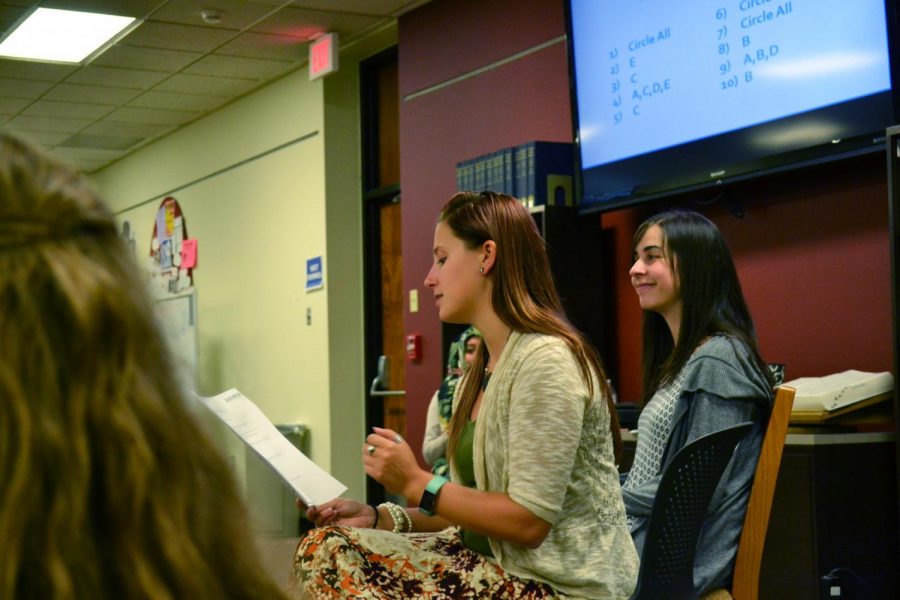Consent and Bystander Intervention programs spread awareness
October 5, 2018
The Consent and Bystander Intervention session was part of the psychology department’s Healthy Relationship series. It took place at 5 p.m. Wednesday, Oct. 3 in Mabee Library. The presentation was held by the sexual assault prevention education team at Washburn.
Delanie Atteberry and Ana Lima are two undergraduate students from the psychology department who presented during the event.
“We are students. Students are more able to talk to someone at the same age and level versus having a teacher as an instructor to students,” Atteberry said.
The presentation gave a basic overview of recognizing relationship red flags. Atteberry and Lima used many national statistics and real cases in the presentation.
“We try to keep it as realistic as possible, using real life situations to teach what we can do,” Atteberry said.
The presentation showcased Washburn’s policies on discrimination and sexual assault. The policies protect individuals against discrimination because of sex, gender identity, sexual orientation or ethnicity.
Attendees talked about situations where an individual may not fully consent to sexual activity.
They presented examples involving individuals who are unconscious, asleep, under the influence of drugs or alcohol, or under 16 years old.
“The key point is that about 77 percent of witnesses of sexual assaults do nothing about it,” Lima said. “We really want people to do something, even if just calling the cops or someone else, so that we could avoid that these things happen in the first place.”
There are many ways for bystanders to intervene when they witness sexual assault or harassment.
Distraction is one way to interrupt the behavior without unintentionally creating a major conflict. When people believe someone is in danger but are not sure, they can ask indirect questions such as “Would you like me to stay with you?” or “Do you want to go hang out somewhere else?”
The presentation also included ways that bystanders can help victims of sexual assault or harassment. These include showing empathy, helping them report to authorities, helping them talk through the event or seek counseling and spreading awareness about sexual assault and harassment.
When students face nonconsensual activities or assault, they can seek help from many resources.
“Another thing that’s important to Washburn is that there were no reports of sexual assaults on campus around the year of 2015,” Lima said. “Now, the number has increased from zero to multiple reports of sexual assaults on campus, which means people are starting to feel comfortable to report and knowing their rights.”
The on-campus resources include the Psychological Services Clinic, Counseling Services, our campus advocate, Molly Steffes-Herman, and Student Health Services. These resources can be reached by phone, email or walk-in appointments.
The presentation was educational for all students and staff on campus, especially freshmen who are beginning college.
“The consent to sexual activity is what we teach to all WU101 classes once a semester,” Atteberry said.
Atteberry marketed this presentation through websites and emails. She also reaches out to professors who provide extra credit to students who come to the presentation.
Now, the psychology department is working further on the consent of sexual activity.
“One of the things we are continuing to work on is training, which is the collaboration between the psychology department and the Sexual Assault Prevention Education team.”
The Consent and Bystander Intervention presentation helped students to recognize consent in sexual activities, gave them knowledge over bystander intervention and provided resources they can utilize when facing this issue. For more information, reach out to Atteberry via email at [email protected].



